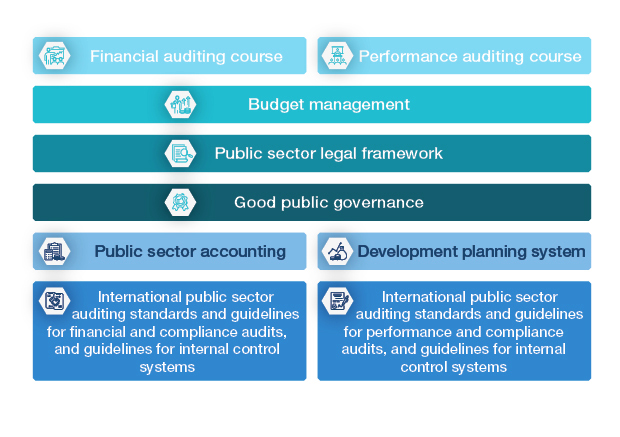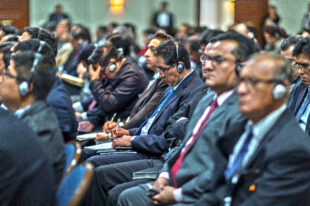SAO Latvia Implements New Training and Certification System for Public Auditors

The State Audit Office (SAO) of Latvia has consistently promoted professional employee growth as an integral part of its organizational development strategy and began developing a nationally recognized training and certification system for public sector auditors in 2016. The SAO continues investing in staff abilities and skills as a key component in maximizing capacity and upholding organizational values—accountability, transparency, and development.
The system provides professional development opportunities at the onset of employment and begins with introductory courses on auditing and topics specific to the public sector, such as the legal framework. The system, which includes more than twenty courses, also offers more advanced, in-depth options, including the use of big data and data analytics in audit work.
The system also includes certification programs for audit team leaders and line managers, which allows the SAO to assess acquired knowledge. Certification can be earned in financial and performance auditing and focuses on public sector audit-related issues, including budget management and international standards.
To develop the training and certification system, the SAO used previously published materials and collaborated with private sector experts. Curriculum was further customized by consulting SAO staff to develop performance audit learning opportunities.
The SAO sought partners in academia to deliver the training and established a cooperative agreement with the Stockholm School of Economics in Riga—a leading European business school.
After completing each course, participants take an exam that includes an effective blend of practical and theoretical situation analyses. As SAO law stipulates certification as a primary prerequisite in managing audit work and staff, the SAO ensures those successfully passing the exams receive a certificate illustrating course mastery.
In September 2020, the SAO implemented two financial auditing courses that resulted in 37 certifications. The SAO also completed one performance auditing session that led to 19 certifications. Given the success of the program, the SAO plans to extend training opportunities to internal auditors from other public institutions and private sector auditors who have a desire to perform public sector audits.
Cultivating this cooperative effort will facilitate quality public sector audits and strengthen the SAO’s role as a competent, credible and relevant institution.






